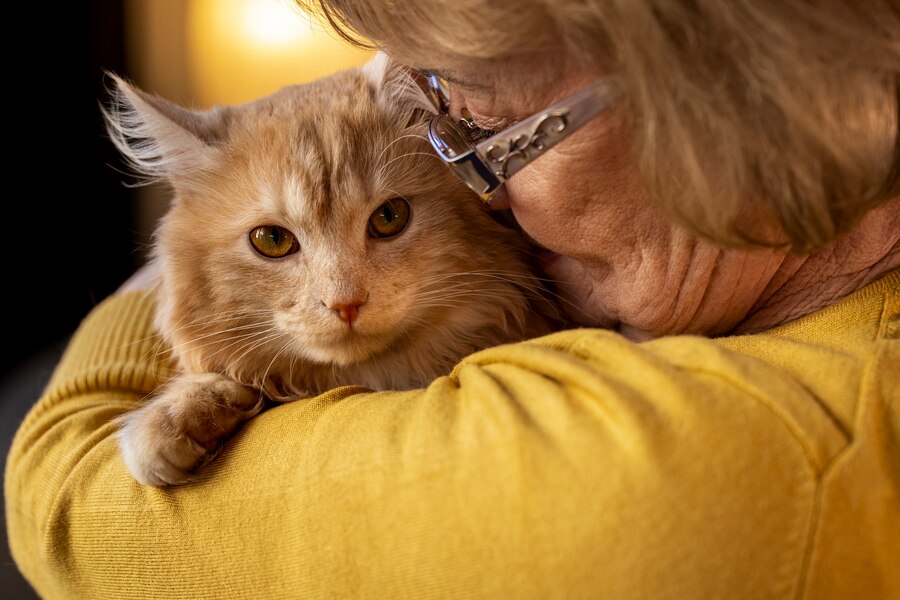When Are Cats Considered Seniors?

(Picture above courtesy of freepik.com)
While the average lifespan of our feline friends is 13 to 17 years, many can live to be 20 years old or more. With such a long life, ensuring that your cats receive the proper care for each stage of their lives is essential, especially when they enter their senior years.
According to the American Association of Feline Practitioners (AAFP), cats are considered seniors after they turn 10. Many veterinarians, however, may begin treating cats as seniors at the age of seven, thereby increasing your own aging kitty’s wellness exams from yearly to every six months.
(Picture courtesy of freepik.com)
Some of the health conditions that senior cats can develop include:
Cancer: intestinal, mammary and oral cancers are all more common in seniors.
Cognitive dysfunction syndrome: 80% of cats suffer from cognitive dysfunction syndrome or dementia at 15 years of age and older. The telltale signs include disorientation, having accidents in your home, hiding, poor grooming, sleeping more than usual and vocalizing, particularly at night.
Dental disease: 80% of cats over the age of five suffer from dental disease. Daily toothbrushing at home coupled with annual dental cleanings at the vet’s can help keep your cat’s teeth and gums healthy and her breath fresh.
Diabetes: extremely common in older cats, especially those who are overweight, makes a concerted weight management program on your part vital in preventing this disease and its myriad complications.
(Picture courtesy of freepik.com)
Hyperthyroidism: increased appetite, weight loss and vocalization are classic characteristics of feline hyperthyroidism.
Inflammatory bowel disease: diarrhea, vomiting and weight loss are three of IBD’s typical symptoms in both middle-aged and senior cats.
Kidney disease: 20% of all cats suffer from kidney disease. Symptoms of this condition can be either subtle or overt and include increased drinking, lack of appetite, larger clumps of urine in your kitty’s litter box and slight weight loss.
Osteoarthritis: over 90% of cats 10 years of age and older suffer from arthritis, a degenerative joint disease.
Ensuring that your purr-ecious kitty’s senior years are truly “golden” begins with consistent and considerate in-home care.
Since senior cats sometimes forget to eat and drink or find it difficult to climb up and down the stairs in a house, make certain that your kitty always has easy access to fresh food and water. As for litter boxes — keep one on each floor, although low, large litter pans will be easier on her joints.
All cats love warm places, especially seniors. Consider keeping yours comfy cozy by providing her with a heating pad or a heated cat bed.
To keep her looking – and feeling – her best with the least amount of effort on her part, groom and brush her every few days.
Because senior cats should be fed a senior-specific diet to meet their unique needs, most veterinarians recommend transitioning them to a senior diet by the time they’re seven years old. When it comes to choosing between over-the-counter diets and prescription diets, dry kibble and canned food, consult your vet who knows your cat best and make this all-important decision, based in part on her health and weight, together.
Purchase a high quality scale (one that weighs accurately to an ounce or less) to monitor her weight, allowing you to catch any sudden weight loss early and easily.
As mentioned before, bring your beloved senior kitty to the vet every six months for a basic wellness exam that includes a complete blood count (CBC), biochemistry profile, urinalysis, thyroid hormone testing, and blood pressure assessment.
In between these visits, observe her closely for any physical or behavioral changes, making note of them and contacting your trusted vet for guidance.




